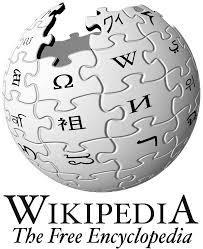
One of the Internet’s most popular websites is the free online encyclopedia called Wikipedia. The site is viewed as an objective source of information and contains entries and listings on the world’s most common subjects as well as mundane and little-known topics.
Wikipedia is a classic web-based creation. While the Internet itself killed the old, trusty home library of encyclopedias (we had the World Book at my house), it was Wikipedia that drove the nails in the coffin and tossed the first handful of dirt.
After typing a general topic into any search engine, you will likely find the Wikipedia listing on the first page of search results and usually near the top. Search engines love Wikipedia because the site is oft-visited and it remains a free, self-governed site that has no advertising, shareholders or marketing agenda.
For individuals and companies that have a listing on Wikipedia, that page will likely be the first thing that most people view when they search for you on Google. This can be a powerful marketing tool – assuming the information on the site is to your liking.
Hey, anyone can edit it, so I will just write whatever I want!
What’s most fascinating about Wikipedia is that literally anyone can edit it and make entries. So, if you happen to be an expert on samurai swords, you can post information on the site about their history, manufacturing, etc. Even if you don’t know a damn thing about the sharp implements, you can also post information. But beware the Wikipedia editors. They will slice and dice you if you publish inaccurate or improperly attributed information.
So you want to be on Wikipedia. Question 1: Are you notable enough?
In my opinion, a Wikipedia listing is a badge of honor for a CEO or top executive. Many PR people have tried and failed to get such a listing approved and published about one of their clients.
But every person can’t have a Wikipedia page, only notable ones. Wikipedia’s community of editors will review a potential listing to ensure it passes notability standards. Did the person or company mentioned create something new and different? Is the person a captain of industry? Is it a truly leading, groundbreaking company? Did he, she or it marry a Kardashian? If you aren’t notable, your proposed Wikipedia entry will not see the light of day.
Question 2: So you’re notable, but can you prove it?
Remembering that Wikipedia is an Internet creation, to prove you are notable, someone on the Internet (that isn’t you) needs to back it up. Articles published online in mainstream media outlets are the best evidence to prove notability. If the Wall Street Journal or the New York Times says you are notable, and the story is readily available online, then you have a much better chance of passing the test. If a lesser known publication wrote about you pre-Internet, it is much tougher. Also, Wikipedia notability police don’t care about press releases written about you, information posted about you on your website (even if it is accurate), or articles you have written for trade publications. You aren’t notable unless a third party – like a classic broad sheet daily newspaper – says it, and it is easily found/linkable online.
Question 3: Can you get past/withstand/outmaneuver the Wikipedia police?
OK, so you believe your entry passes the notability test and you want to publish it. There are many obstacles. First, you can’t publish your own entry or the Wikipedia police will scotch it. They want entries written and posted by objective writers. Worse yet are public relations people. We in the PR biz identified the value of Wikipedia several years ago, and the editors quickly decided that we can’t be objective. If you publish an entry and your email address is (insert name) @DavidPR.com for example, they will identify you as a PR person and stone you. Yes, this has happened to me.
Also, even if you are the best source of information on a topic, the Wikipedia police will pounce. Years ago, we had a client that didn’t like their Wikipedia entry. Silly me, I logged on to the Wikipedia page, made edits and then noted that I was a PR person for the client. I also noted that I would be regularly contributing to the page. Not so fast my friend. Wikipedia editors quickly reversed all of my edits and chastised me for suggesting that anyone so close to the topic could be objective. Undaunted, I changed the edits back and thumbed my nose at the editors. My edits were again reverted and the chastising continued. As the conversation degraded, I retreated to ponder a new approach.
Ever been called a sockpuppet?
A marketing person for my client, not as circumspect as me, went back and made the same edits. The Wikipedia editors decided that my client must have been me – just using another ISP. I was branded a “sockpuppet” – a person who impersonates another online. After a moment of being aghast, I laughed my head off.
Here’s a secret
The next time I wanted to create a Wikipedia entry, I worked with a third party editor to draft the page and completely distanced my connection (and my PR guy DNA) from Wikipedia. The page topic passed the notability test, the text was properly written and attributed, and the page was eventually published. To get a page published, you have to pass all the tests and then artfully game the system so your “perceived lack of objectivity” will not be immediately noticeable to Wikipedia editors. It’s tricky but not impossible.
While I don’t claim to be a Wikipedia expert, I do believe I have shed the sockpuppet label.
Ever had a run-in with Wikipedia? Please share as you are certainly not alone.
—John
author: John P. David